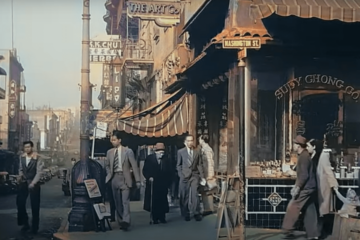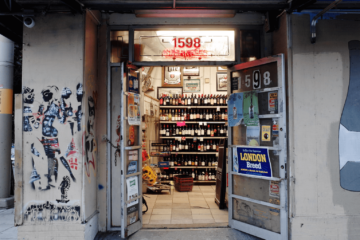Angry Reviews Of “No Smell” Candles Go Up With Omicron Surge
To forecast future surges in Covid, it seems like all we have to do is check out online reviews for Yankee Candles, or other brands of scented wicks.
In 2020, Terri Nelson, a painter and artist, first pointed out in a tongue-and-cheek Tweet that there were angry customers reporting their candles had no smell. The recent Omicron surge had people revisiting Amazon review sections for a recent wave of bad reviews for candles.
There are angry ladies all over Yankee Candle’s site reporting that none of the candles they just got had any smell at all. I wonder if they’re feeling a little hot and nothing has much taste for the last couple days too.
— Terri Nelson (@TerriDrawsStuff) November 24, 2020
Kate Petrova, a research assistant at Bryn Mawr College, decided to further investigate by taking a look at the public reviews online.
I couldn’t just walk past this Tweet, so here is some fun #dataviz
— Kate Petrova (@kate_ptrv) November 27, 2020
Scented candles: An unexpected victim of the COVID-19 pandemic 1/n https://t.co/xEmCTQn9sA pic.twitter.com/tVecEiX5Jc
“It is rare, at least in my line of work, to stumble upon an anecdotal observation that can be examined using such vast amounts of easily accessible data,” Petrova said to the Washington Post, who decided to scrape reviews out of personal curiosity.
She found that before 2020, reviews of the top scented candles hovered between 4 and 4½ stars, year after year, but throughout 2020, reviews fell a full star.
Focusing on reviews with terms like “no scent,” “no smell” and “can’t smell,” she found that the percent of reviews reporting a lack of scent tripled from 2 percent in January 2020 to 6 percent in November 2020.
fresh wave of bad reviews for yankee candles pic.twitter.com/1mlandB78I
— drewtoothpaste (@drewtoothpaste) December 21, 2021
Now, a year later, Drew Fairweather, a writer and comics artist, pointed out the trend, seemingly coinciding with the Omicron wave.
Nick Beauchamp, an assistant professor at Northeastern University, plotted “no smell” complaints in Yankee Candle reviews on Amazon, finding a rise in percentage of complaints similar to that of late 2020.
Beauchamp also pointed out that this trend persisted prior to Covid, and that his analysis also showed that there is a seasonal surge in “no smell” complaints around the holiday season.
Instead of counts, here's the percentage of reviews with "no smell." It shows the same pattern, though it's less dramatic since some of the count spike is due to an overall rise in sales and reviews each winter. pic.twitter.com/5eHEtlgVH7
— Nick Beauchamp (@nick_beauchamp) December 22, 2021
Btw, I wouldn't take this too seriously. Even looking at percentages, there seems to be a seasonal surge in "no smell" each winter. The recent Covid surges are larger, and the first wave is possibly visible as well, but this is also sensitive to how you smooth the data. pic.twitter.com/wf1udbrCys
— Nick Beauchamp (@nick_beauchamp) December 22, 2021
As one commenter pointed out, “Yankee Candle Index : Covid :: Waffle House Index : Hurricanes,” referring to another informal metric tied to something oddly but endearingly specific, and surprisingly effective, coined by Craig Fugate of the Federal Emergency Management Agency following the 2011 Joplin tornado, when both of the Waffle Houses in the city stayed open.
“If you get there and the Waffle House is closed? That’s really bad,” Beauchamp said. The Waffle House Index is premised upon the chain’s reputation for effective risk management and emergency preparedness in extreme weather events.








